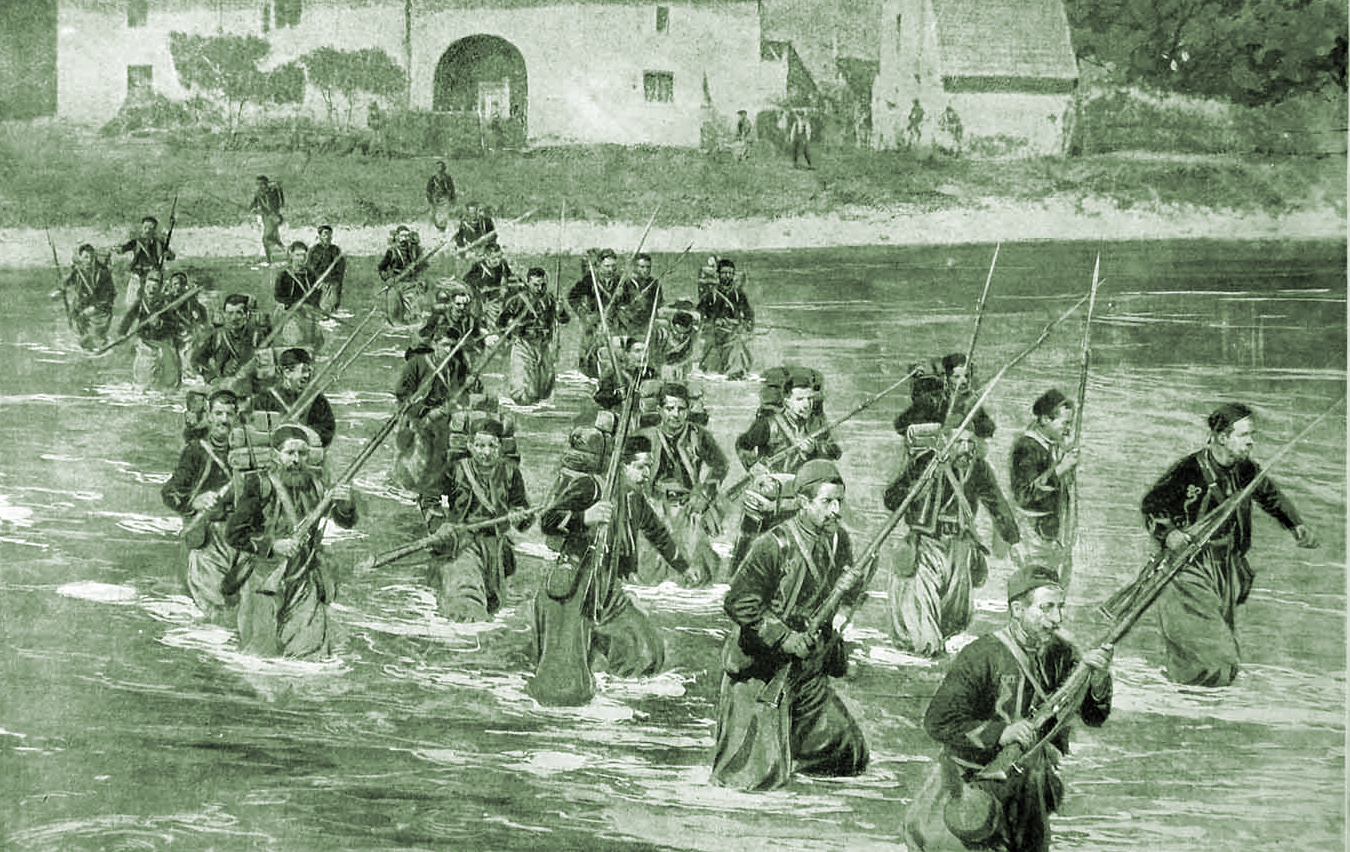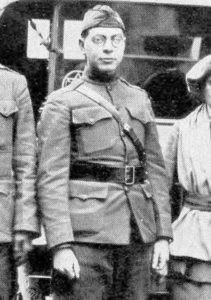 Zouave soldiers crossing a river in northern France in World War I, preparing to attack German trenches. A large minority of the North African Zouaves were Jewish. [Image from the London periodical The Graphic, April 10, 1915.]
Zouave soldiers crossing a river in northern France in World War I, preparing to attack German trenches. A large minority of the North African Zouaves were Jewish. [Image from the London periodical The Graphic, April 10, 1915.]
Today’s “guest blogger” from the past is a rabbi who served in World War I. Under the pen name “A Jewish Chaplain” (“Un Aumônier Israelite”), he wrote articles about his wartime experiences for the French Jewish magazine L’Univers Israélite.
In 1915, he was chaplain to the Jews in an Algerian division of Zouaves (French light-infantry forces, originally recruited from African countries that France had invaded and colonized). Below, our anonymous rabbi tells us how he and his minyan sought Purim joy and comfort in perilous conditions, close to the front line.
Memories of Purim at the front
(L’Univers Israélite, March 24, 1916.
Translation from French ©2017 by Steven Capsuto.)
Circumstances keep me from celebrating Purim among soldiers this year, and so my thoughts return to a year ago when I was just starting out as a chaplain.
I arrived at the front a few days before Purim. At my request, I had been assigned to an Algerian division. I suspected there must be a number of our believers there, but I did not know any of them and did not know how to find them. I considered trying an approach that had served me well a few weeks earlier in Saint-Denis, when I had wanted to identify some Jews among the Zouaves stationed there. I had posted myself outside the door to their quarters, and each time a Zouave came out, I would ask, “Do you know Shema Yisrael?” “No, I don’t,” replied one. “Which company is he in?” asked another. “I knew someone with a name like that, but he’s not here anymore.” After other disheartening responses, finally one Zouave’s eyes lit up at my question, letting me know he had understood. Through him, I met other Algerian Jews, but one after the other, they were all Continue reading

